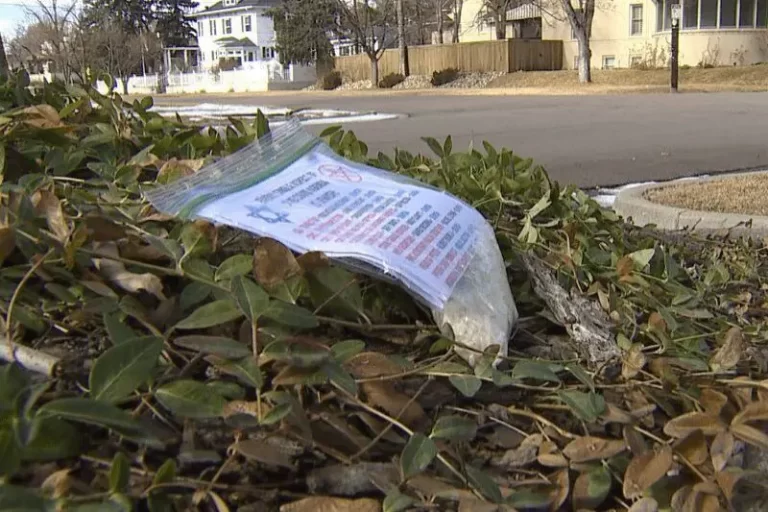After the antisemitism scandal surrounding a leaflet from the school days of the deputy Bavarian Prime Minister Hubert Aiwanger (free voters), the Federal Government’s Antisemitism Commissioner, Felix Klein, renewed his call to the editorial network Germany (RND) to introduce a nationwide obligation to report antisemitic cases in all schools. In Bavaria, as in other federal states, these do not exist at this time.
But what about antisemitism in German schools? And what are the consequences today if there is an incident? And what would an obligation to report bring?
According to the racism study by the SPD-affiliated Friedrich-Ebert-Foundation from 2021, around 8 percent of those surveyed had a “classic” antisemitic attitude. Expressions such as “Through their behavior, Jews are complicit in their persecution” were defined as “classic”. Agreement was even higher for Israel-related antisemitism, at 13 percent. A year earlier, i.e. in 2020, the University of Leipzig also conducted the so-called authoritarianism study to. The researchers wanted to find out where and how many old resentments and new radicalism in society can be uncovered. According to this, 10 percent agreed with the statement “Even today, the influence of the Jews is great”, and almost 25 percent agreed with this statement in part.
Although the number of crimes fell during the Corona years, according to the Federal Ministry of the Interior, antisemitic crimes increased. In 2022, authorities recorded 2,641 antisemitic crimes, 88 of which were violent crimes. The majority, 83 percent, belonged to the right-wing milieu. In 2021 there were 3027. The Office for the Protection of the Constitution also warns in the antisemitism situation report 2021/2021: “The pandemic is causing antisemitic conspiracy ideas, some of which are centuries-old, to be spreading again, reaching into the middle of society.”
Exactly how many antisemitic incidents there are in schools is not fully documented. However, there are studies on how strongly Jews are confronted with antisemitism during their school days. The Institute for Research on Conflict and Violence and the sociologist Julia Bernstein from the Frankfurt University of Applied Sciences asked Jews how they experience antisemitism in Germany. The study published in 2017 was commissioned by the Independent Expert Group on Antisemitism. According to this, a third of those surveyed stated that they had experienced antisemitism in kindergarten, at school, during training or at university in the past twelve months. According to the study, this happened either as a provocation with reference to the Nazi era, as an anti-Israel attitude or by using the word “Jew” as an insult.
In the past, the antisemitism commissioner Klein has already criticized the teaching material on Judaism in schools, which often creates stereotypical images. There, Jewish life is described “as it was 2000 years ago”. “Boys read the Torah and girls grind grain.” In addition, there are sometimes devastating depictions in religious education. Jews who listen to Jesus’ Sermon on the Mount are portrayed as gloomy.” This often happens unconsciously, but it shouldn’t get stuck in the children. “Textbooks must make it clear that Jews belong to Germany.”
The Amadeu Antonio Foundation documents all antisemitic incidents that have become public in chronological order on its website.
A duty to report antisemitic incidents in schools has been discussed time and again in recent years, and not just by the antisemitism officer. The Union also called for this back in 2018, as did experts.
In Lower Saxony, for example, as in Rhineland-Palatinate, Saxony-Anhalt and Saarland, there is no special registration system. In Thuringia and Saxony, “special incidents” are reported, including right-wing extremism and antisemitism. In North Rhine-Westphalia, antisemitic crimes in schools are reported to the police, in Hesse and Baden-Württemberg they are at least reported to the school authorities. Only in Berlin is there a statistically precise reporting system.
But does this bring anything? The experts Simon Brost and Alexander Rasumny classify the effects of the online platform Anders Denken , which educates teachers about antisemitism, funded by the federal government: Reporting is an important and in many cases the only way for those affected to get help for dealing with it personally to get the incident. Accordingly, it is not only about statistics and traceability, but above all about school children, who find it more difficult to classify and process hostility to their own Jewish identity.
The second argument for a reporting system, however, is the statistics: only when the incidents reach the public can an awareness of the problem be formed. A continuous reporting system could illuminate the dark field. However, the incidents would have to be identified as such. According to Brost and Rasmuny, children did not dare to report the incidents for a variety of reasons. Accordingly, teachers must be informed in such a way that they recognize antisemitic tendencies in statements or incidents.
But it shouldn’t just be a mere report. Above all, it is important that these statements are not left unchallenged. And sanctions should only be the last step. “The task of politics and administrative action is to create a secure framework for processing and to provide structures and instruments that enable schools and teachers to act adequately,” write the experts. For example, they require further training and seminars during teacher training.





